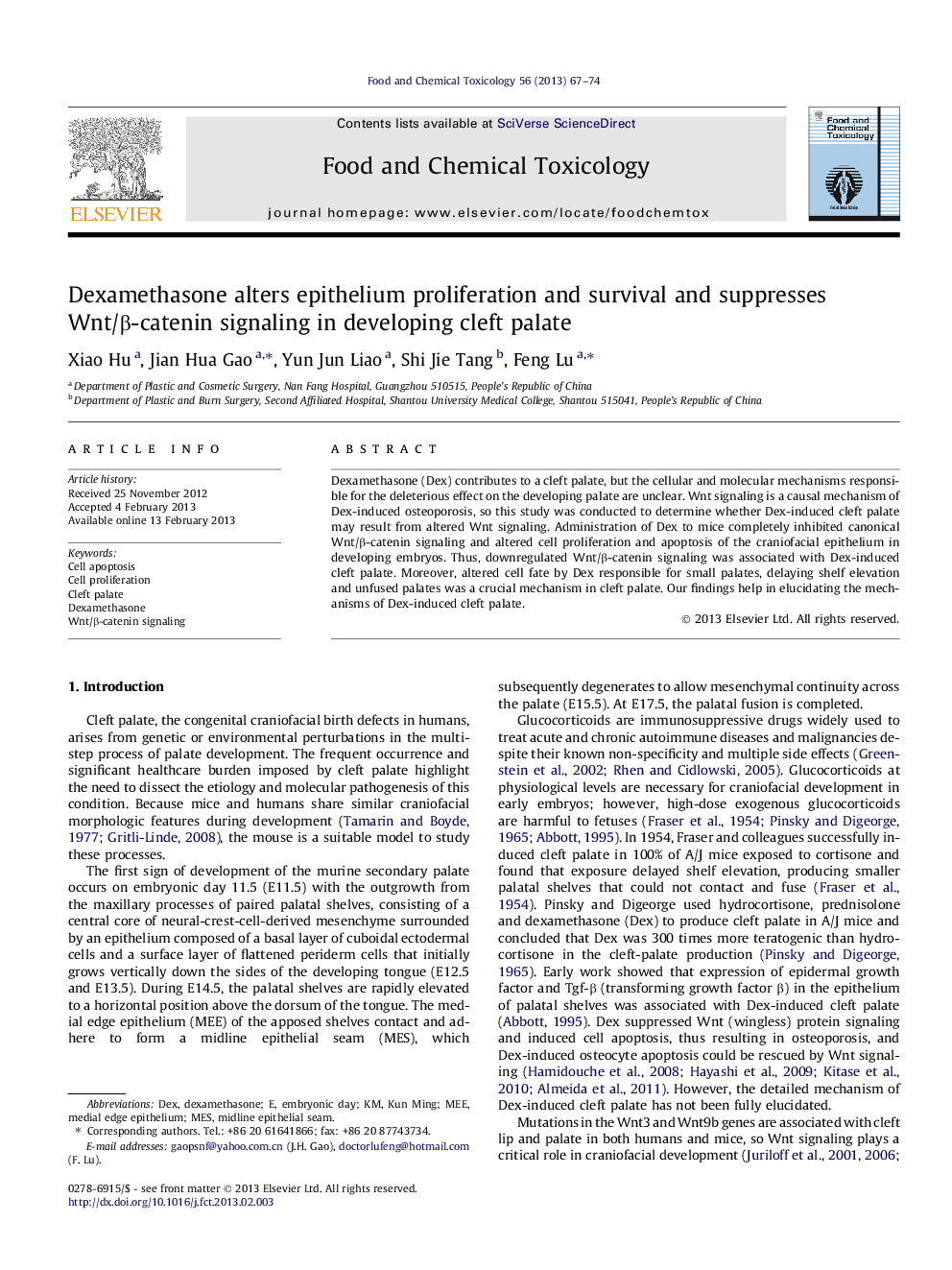| Article ID | Journal | Published Year | Pages | File Type |
|---|---|---|---|---|
| 5851186 | Food and Chemical Toxicology | 2013 | 8 Pages |
Dexamethasone (Dex) contributes to a cleft palate, but the cellular and molecular mechanisms responsible for the deleterious effect on the developing palate are unclear. Wnt signaling is a causal mechanism of Dex-induced osteoporosis, so this study was conducted to determine whether Dex-induced cleft palate may result from altered Wnt signaling. Administration of Dex to mice completely inhibited canonical Wnt/β-catenin signaling and altered cell proliferation and apoptosis of the craniofacial epithelium in developing embryos. Thus, downregulated Wnt/β-catenin signaling was associated with Dex-induced cleft palate. Moreover, altered cell fate by Dex responsible for small palates, delaying shelf elevation and unfused palates was a crucial mechanism in cleft palate. Our findings help in elucidating the mechanisms of Dex-induced cleft palate.
⺠Dexamethasone-induced cleft palate results from unfused palatal shelves. ⺠Dexamethasone inhibits Wnt/β-catenin pathway in palate development. ⺠Dexamethasone alters medial edge epithelium proliferation in palate development. ⺠Dexamethasone reduces epithelium apoptosis to delay the elevation of palatal shelf.
